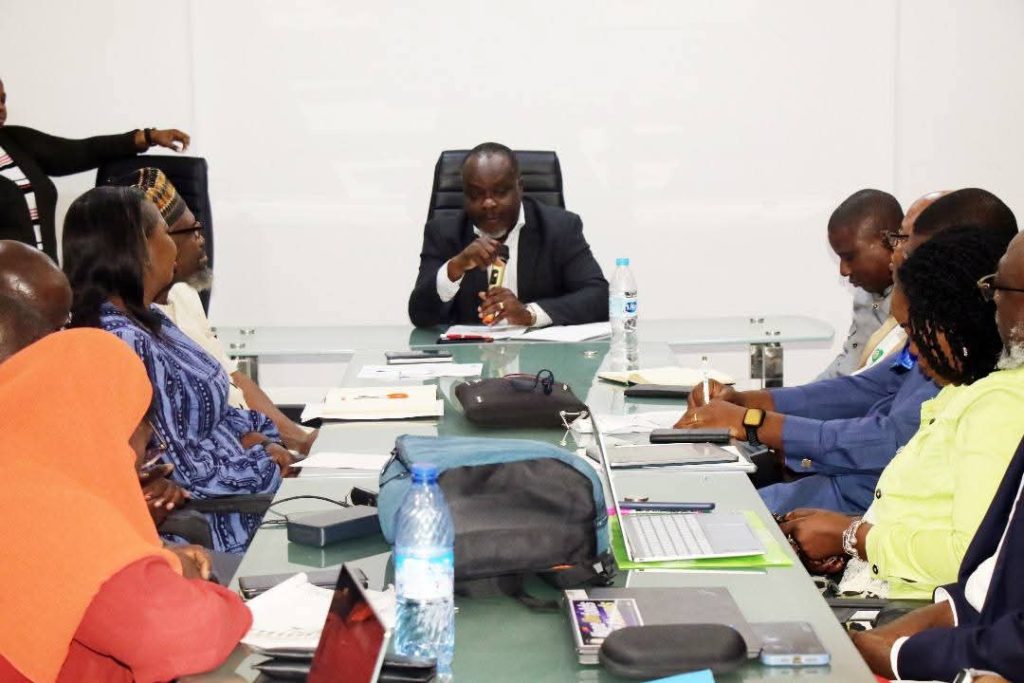The Lagos State Ministry of Health has commenced a crucial statewide survey to estimate children’s blood lead levels and assess environmental health.
This marks a step in addressing growing concerns over heavy metal exposure among the youngest population.
This initiative is being driven by the Inter-Agency Working Group (IAWG) on Lead Poisoning Elimination in Nigeria, with support from UNICEF and implementation by the African Field Epidemiology Network (AFENET).
READ ALSO: Lagos govt partners with Diageo Nigeria to empower youth in hospitality, retail
The formal launch of preparatory activities for the survey took place during an advocacy visit by the IAWG delegation to the Ministry at Alausa Secretariat, Ikeja.
The survey aims to establish a replicable model for a national response to lead poisoning, particularly in light of reported heavy metal contamination incidents in various Nigerian communities.
Olusegun Ogboye, Permanent Secretary of the state Ministry of Health, welcomed the survey team.
He emphasised the importance of transparency, clear communication, and continuity.
He stressed that health studies must lead to actionable outcomes and fully integrate state involvement, moving beyond mere data collection.
Ogboye expressed satisfaction that the survey plan includes treatment and prevention strategies, reiterating the state’s readiness to collaborate provided the process remains inclusive and ethically sound.
More so, Ganiyu Jamiyu, Chief Consultant Epidemiologist at the Federal Ministry of Health and Social Welfare and head of the delegation said the initiative follows a ministerial declaration identifying lead poisoning as a public health emergency.
The national objective, he revealed, is to eliminate lead poisoning in Nigeria by 2030.
“The plan is to begin with Lagos due to its population and environmental dynamics,” Jamiyu stated.
He highlighted the particular vulnerability of children under five, noting that ‘This survey, focused on their blood lead levels, will give us a baseline for exposure in both rural and urban settings.’
He added that the effort involves coordination with multiple ministries, including Environment, Mining, Agriculture, and Finance, and adheres to international standards.
While acknowledging well-documented outbreaks in Sokoto and Zamfara, Jamiyu stressed that ‘Lagos represents a different but equally critical exposure landscape.’
Yunuss AbdulGaniyu, Director of Pollution Control at the Federal Ministry of Environment, provided insights into the various routes of lead exposure.
“From lead-based paints and battery recycling to artisanal mining and cosmetic products, the sources are numerous. Lagos, as a melting pot, carries the full weight of these challenges,” he explained.
He disclosed that non-invasive tools, such as the X-Ray Fluorescence (XRF) scanner, would be used to measure lead concentration in soil, and samples might also be taken from lactating mothers due to the risk of maternal-to-child lead transfer through breast milk.
He assured that the study design incorporates ethical protocols including consent, data confidentiality, and community protection, noting the state’s early involvement in protocol development.
Patrick Nguku, AFENET’s Regional Coordinator, reiterated that the project aligns with a ‘whole-of-government and whole-of-society’ approach to evidence-based interventions.
Fatima Cheshi, UNICEF’s Health Specialist, affirmed UNICEF’s involvement stems from its core mandate to protect child development, explaining Lagos’s strategic selection as the pilot location due to its national representativeness.
Ismail Abdus-Salam, Director of Epidemiology, Biosecurity and Global Health in the state Ministry of Health, highlighted existing heavy metal contamination findings from the recent cholera outbreak.
“While searching for vibrios, we stumbled on cadmium and lead. This adds urgency to our need for collaboration,” he stated.
He pledged the state’s full technical support, particularly in health worker training and community engagement, assuring that ‘Lagos is ready to hit the ground running’ given its existing laboratory systems and surveillance capacity.
READ ALSO: Low turnout, voter apathy mar 2025 Lagos local govt election
The IAWG outlined a six-point request for support from the state, including endorsement, provision of technical staff, health worker mobilisation, use of state health promotion platforms, referral linkages for affected children, and data utilisation for policy-making.
The nine-member delegation, comprising representatives from AFENET, UNICEF, and civil society, affirmed their commitment to collaborate with the state throughout all phases of the survey.
The ministry pledged to enhance inter-agency collaboration and seamlessly integrate the survey into existing public health systems.



